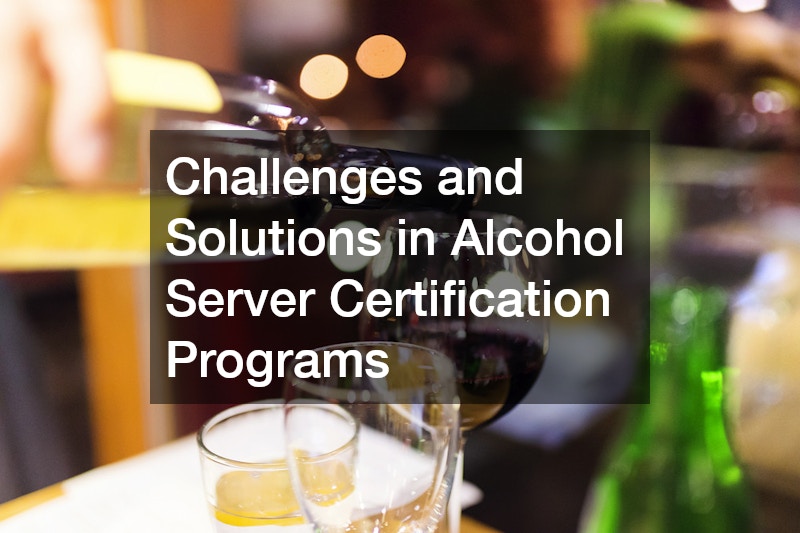
Understanding the Importance of Alcohol Certification
Alcohol server certification is a crucial requirement for bartenders, waitstaff, and managers in the hospitality industry. It ensures that employees are well-informed about the laws and regulations surrounding alcohol service. By obtaining this certification, individuals demonstrate their commitment to responsible alcohol service, which is essential for public safety.
Many states and local jurisdictions mandate alcohol server certification to minimize the risks associated with alcohol consumption. The training covers important topics such as age verification, recognizing signs of intoxication, and safe service methods.
This knowledge helps prevent over-serving and reduces the potential for alcohol-related incidents.
For establishments, employing certified servers can lead to reduced liability insurance premiums and improved workplace safety. It can also enhance the establishment’s reputation, attracting more patrons who value responsible service. Therefore, understanding and valuing the importance of alcohol server certification is vital for both individuals and businesses in the hospitality sector.
The Process of Obtaining Alcohol Server Certification
Obtaining an alcohol server certification typically begins with enrolling in a state-approved training program. These programs are often available both in-person and online, providing flexibility to accommodate different learning styles and schedules. The curriculum usually covers essential topics including legal responsibilities, best practices for serving, and handling difficult situations involving alcohol.
Once the training is completed, participants must pass a certification exam, which tests their understanding of the course material. Successfully passing this exam demonstrates a thorough knowledge of responsible alcohol service and the ability to apply it in real-world situations. This rigorous process ensures that those serving alcohol are up to date with current regulations and practices.
Many certification programs also provide refresher courses to keep servers informed about new laws or industry trends. These follow-up courses are crucial for maintaining a high standard of service and keeping the certification valid. Overall, the process of obtaining and maintaining an alcohol server certification reinforces the importance of continual education in the hospitality industry.
Benefits of Alcohol Server Certification for Individuals and Businesses
Alcohol server certification offers numerous benefits for individual employees, enhancing their career prospects in the service industry. Certified servers are often preferred by employers, as they bring valuable knowledge and skills to the table. Additionally, obtaining certification can lead to higher wages and better job stability.
For businesses, employing certified servers can significantly reduce legal risks and improve operational efficiency. With certified staff, establishments can ensure compliance with legal requirements, which helps avoid costly fines or lawsuits. Moreover, certified employees contribute to a safer environment by promoting responsible drinking and preventing alcohol-related issues.
Implementing a policy of hiring only certified servers can also boost a business’s reputation among customers and the community. Patrons are more likely to frequent establishments that prioritize safety and responsible service. Therefore, investing in alcohol server certification benefits both individuals seeking career advancement and establishments aiming for long-term success.
Challenges and Solutions in Alcohol Server Certification Programs
While alcohol server certification programs are beneficial, they can also pose certain challenges. One common issue is the cost associated with training and certification, which can be burdensome for some individuals and businesses. However, many states offer affordable options or even employer reimbursement programs to ease this financial burden.
Another challenge is keeping staff motivated and engaged with mandatory certification and refresher courses. To address this, employers can emphasize the career advantages and legal protection that certification provides. Encouraging a workplace culture that values continuous learning can also help overcome resistance to ongoing education and re-certification.
Finally, the dynamic nature of alcohol laws and regulations requires regular updates to certification programs. Program providers need to stay current with legal changes to ensure the curriculum remains relevant and effective. Collaboration with regulatory bodies and industry experts can facilitate timely updates and improvements to the course material, thereby maintaining the value of alcohol server certification.
.




